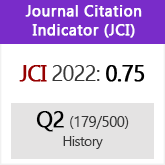Consenso e imposición en la conservación de la monarquía. La práctica política en un territorio de la periferia castellana: el Reino de Murcia (1682-1700)
DOI:
https://doi.org/10.3989/hispania.2003.v63.i215.210Keywords:
Political consensus, Coercion, Crown, Local elites, Service, Royal compensation, Recruitment, Bourbon reformAbstract
For many years, the second half of the seventeenth century has been considered the paradigm of the so-called decadence of Spain. But there are many reasons to reconceptualize this period as one which saw the origin of new socio-economic and political foundations upon which the success attributed to Bourbon reforms would be based. Taking the kingdom of Murcia as a model, this article deals with a generation of political consensus between local elites and the Crown in a context of royal and institutional instability, relating to the succession of Carlos II and to the fact that the Cortes of Castile were not convened. The defence of the borders of the Monarchy meant a perceptible fiscal increase and the development of new administrative instruments to make coercion over the population more effective.
Downloads
Download data is not yet available.
Downloads
Published
2003-12-30
How to Cite
Muñoz Rodríguez, J. D. (2003). Consenso e imposición en la conservación de la monarquía. La práctica política en un territorio de la periferia castellana: el Reino de Murcia (1682-1700). Hispania, 63(215), 969–993. https://doi.org/10.3989/hispania.2003.v63.i215.210
Issue
Section
Studies
License
Copyright (c) 2003 Consejo Superior de Investigaciones Científicas (CSIC)

This work is licensed under a Creative Commons Attribution 4.0 International License.
© CSIC. Manuscripts published in both the printed and online versions of this Journal are the property of Consejo Superior de Investigaciones Científicas, and quoting this source is a requirement for any partial or full reproduction.All contents of this electronic edition, except where otherwise noted, are distributed under a “Creative Commons Attribution 4.0 International” (CC BY 4.0) License. You may read here the basic information and the legal text of the license. The indication of the CC BY 4.0 License must be expressly stated in this way when necessary.
Self-archiving in repositories, personal webpages or similar, of any version other than the published by the Editor, is not allowed.














